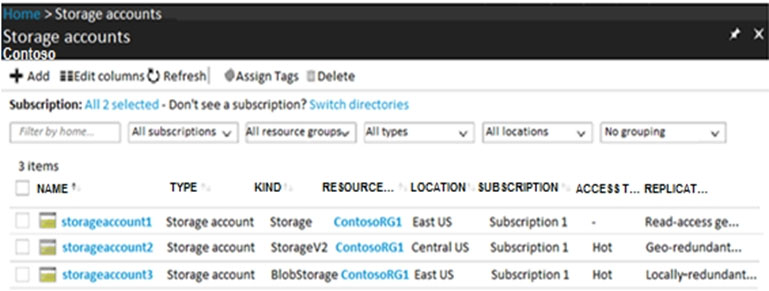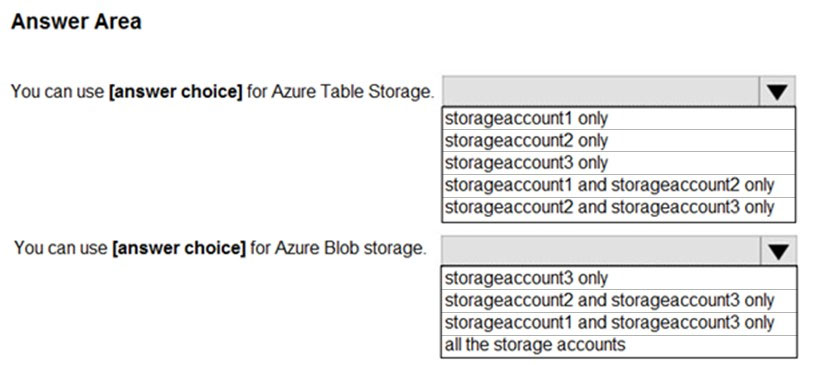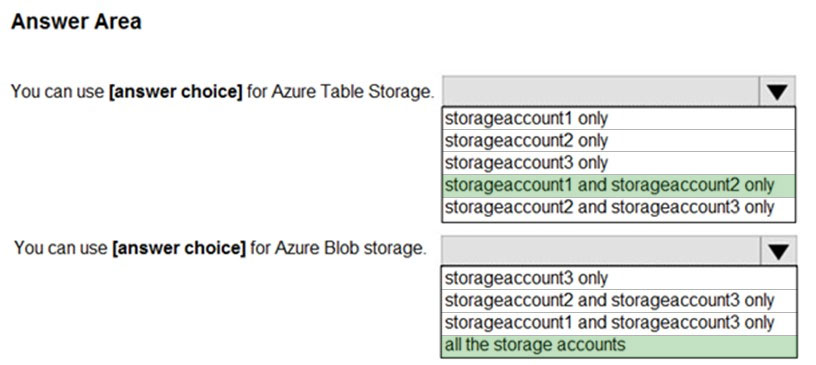

HOTSPOT -
You have Azure Storage accounts as shown in the following exhibit.
Use the drop-down menus to select the answer choice that completes each statement based on the information presented in the graphic.
NOTE: Each correct selection is worth one point.
Hot Area:

Kraviecc
Highly Voted 4 years, 6 months agoazurellc
Highly Voted 4 years, 2 months agosachinp2305
Most Recent 3 years, 4 months agoitvinoth83
3 years, 4 months agoshree178
3 years, 5 months agosyu31svc
3 years, 11 months agosyu31svc
3 years, 11 months agofipblah1234
4 years, 1 month agopawel1231231
4 years agoDann055
4 years, 4 months agoprashantjoge
4 years, 5 months agodrexciya28
3 years, 11 months ago